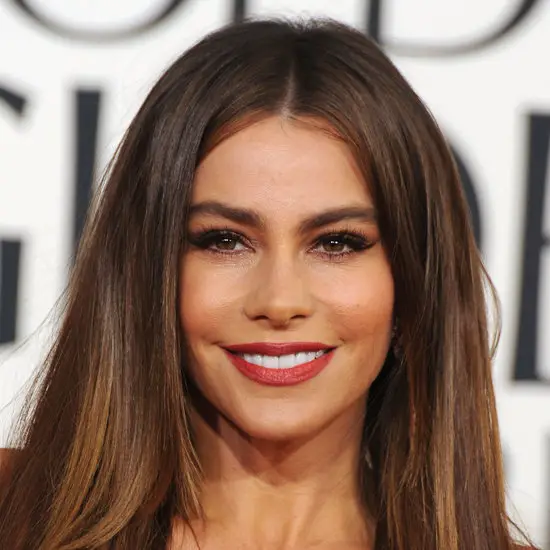Fair Color Skin: The Journey To Embrace Natural Beauty
Hey there, beautiful soul! Let’s dive into a topic that’s been on everyone’s mind lately—fair color skin. Yeah, you heard me right. Whether you’re scrolling through social media or chatting with friends, the conversation about skin tone and beauty standards keeps popping up. And honestly? It’s time we clear the air and break down the myths once and for all.
See, fair color skin has been glorified for ages, but what does it really mean? Is it just about having lighter skin, or is there more to the story? Spoiler alert: it’s way deeper than you think. In this article, we’ll explore the science behind skin pigmentation, bust some common myths, and talk about embracing your natural self. So, grab your favorite drink, sit back, and let’s get real about beauty standards.
But before we go any further, let’s set the record straight. This isn’t just another article telling you what to believe. It’s a conversation, a safe space where we can discuss the truth about fair color skin, its cultural significance, and why you don’t need to fit into anyone’s box. Ready? Let’s do this!
- Ltere Frauen Spa Entdecke Heie Milfs Mehr Neue Videos
- Reis Kochen Leicht Gemacht Tipps Tricks Fr Perfekte Ergebnisse
What Exactly is Fair Color Skin?
Alright, let’s start with the basics. Fair color skin refers to a lighter skin tone, typically characterized by less melanin production. Melanin, for those who don’t know, is the pigment that gives our skin its color. The more melanin you’ve got, the darker your skin tends to be. But here’s the kicker—fair skin isn’t just about genetics. Environmental factors, lifestyle choices, and even health conditions can influence your skin tone.
Now, some people might think fair color skin is the ultimate beauty goal, but that’s far from the truth. Beauty comes in all shades, and it’s high time we recognize that. Studies have shown that skin tone diversity is what makes humanity so fascinating. Plus, fair skin comes with its own set of challenges, like increased sensitivity to sunlight and a higher risk of sunburn. So, it’s not all rainbows and butterflies, folks.
Understanding Melanin and Its Role
Let’s dive a little deeper into the science of melanin. Melanin is like your skin’s personal bodyguard—it protects you from harmful UV rays. But here’s the thing: people with fair color skin have less melanin, which means they need to be extra cautious about sun exposure. According to research from the American Academy of Dermatology, fair-skinned individuals are at a higher risk of developing skin cancer. Scary, right? That’s why sunscreen isn’t just an option—it’s a necessity.
- Seitenscheitel Bergang Die Angesagtesten Mnnerfrisuren
- Frankfurt Hotspot Xiangxiang Malatang Ein Kulinarischer Hot Pot Guide
And hey, let’s not forget about the genetic side of things. If your parents have fair skin, chances are you’ll inherit that trait too. But even within families, skin tones can vary wildly. It’s like Mother Nature’s way of keeping things interesting!
Why Fair Color Skin is Often Idealized
Now, let’s talk about the elephant in the room. Why is fair color skin often seen as the ideal? Historically, many cultures have associated lighter skin with wealth, privilege, and beauty. Back in the day, people with fair skin were seen as part of the upper class because they didn’t have to work in the fields under the scorching sun. Fast forward to today, and those outdated beliefs still linger in some parts of the world.
But here’s the thing—media plays a massive role in shaping our perceptions. Open up any magazine or scroll through Instagram, and you’ll notice a pattern. Fair-skinned models dominate the covers, and it’s no coincidence. Brands know that showcasing lighter skin tones sells, and that’s why they keep doing it. But guess what? Times are changing, and more people are starting to speak up against these narrow beauty standards.
The Impact of Media on Beauty Standards
Media’s influence on beauty standards can’t be ignored. From Hollywood to Bollywood, fair color skin has long been the norm. But here’s the twist—celebrities like Lupita Nyong’o and Viola Davis are challenging the status quo. They’re proving that beauty isn’t confined to one shade, and their confidence is inspiring millions around the world.
And let’s not forget about the power of social media. Platforms like TikTok and Instagram are filled with influencers who celebrate their unique features, regardless of their skin tone. It’s a beautiful movement, and it’s helping to reshape the narrative around beauty. So, the next time you see someone with fair color skin being praised, remember that every shade deserves equal admiration.
The Science Behind Fair Skin
Let’s geek out for a moment and talk about the science behind fair skin. As we mentioned earlier, fair color skin is all about melanin—or the lack thereof. But there’s more to it than just pigmentation. Researchers have discovered that certain genetic mutations can lead to lighter skin tones. For example, the MC1R gene is often linked to fair skin and red hair. Cool, right?
Another interesting fact? Fair skin is more common in people from northern European descent. Why? Because their ancestors lived in regions with less sunlight, so their bodies adapted by producing less melanin. It’s like evolution’s way of saying, “Hey, we need to absorb more vitamin D here!”
Health Considerations for Fair Skin
But let’s not sugarcoat it—fair color skin comes with its own set of health considerations. As we mentioned earlier, people with fair skin are more prone to sunburn and skin cancer. That’s why dermatologists recommend wearing sunscreen every single day, rain or shine. And here’s a pro tip—choose a broad-spectrum sunscreen with at least SPF 30 for maximum protection.
And don’t forget about hydration! Fair skin can get dry and flaky if it’s not properly moisturized. So, invest in a good quality moisturizer and make it a part of your daily routine. Trust me, your skin will thank you for it.
Common Myths About Fair Color Skin
Let’s debunk some common myths about fair color skin. Myth number one: fair skin is always flawless. Wrong! Just like any other skin tone, fair skin can have its own set of imperfections. Acne, dark spots, and redness are all common concerns for people with fair skin. So, stop comparing yourself to those Photoshopped images online—they’re not real!
Myth number two: fair skin doesn’t need exfoliation. Oh, how wrong you are! Exfoliating is essential for maintaining healthy skin, regardless of your skin tone. It helps remove dead skin cells and keeps your complexion looking radiant. Just make sure to use a gentle exfoliant so you don’t irritate your skin.
Separating Fact from Fiction
And here’s a myth that drives me crazy—fair skin is always delicate. While it’s true that fair skin can be more sensitive, that doesn’t mean it’s fragile. With the right skincare routine, you can keep your skin strong and healthy. Plus, fair skin can be just as resilient as any other skin tone. So, let’s stop perpetuating these harmful stereotypes and focus on what really matters—taking care of your skin.
Celebrating Diversity in Skin Tone
Now, let’s talk about the real issue here—why do we need to celebrate diversity in skin tone? Simple. Because every shade is beautiful! Whether you’ve got fair color skin, dark skin, or anything in between, your skin tone is a part of who you are. It tells a story about your heritage, your experiences, and your journey through life.
And guess what? Science backs this up. Studies have shown that diversity in skin tone is crucial for our survival as a species. It helps us adapt to different environments and protects us from harmful UV rays. So, the next time someone tries to tell you that fair skin is superior, remind them that variety is the spice of life.
How to Embrace Your Natural Skin Tone
So, how do you embrace your natural skin tone? Start by loving yourself for who you are. Stop comparing yourself to others and focus on what makes you unique. Surround yourself with positive influences and people who celebrate your individuality. And most importantly, take care of your skin—because when you feel good about yourself, it shows.
Here’s a quick list of tips to help you embrace your natural beauty:
- Practice self-care regularly
- Stay hydrated and eat a balanced diet
- Use skincare products that work for your skin type
- Avoid harsh chemicals and treatments
- Embrace your unique features with confidence
The Future of Beauty Standards
So, where do we go from here? The future of beauty standards looks bright. More and more brands are embracing diversity and showcasing models of all skin tones. Campaigns like Dove’s Real Beauty and Fenty Beauty’s inclusive shade range are paving the way for a more inclusive world. And that’s something we can all get behind.
But let’s not forget about the power of individual voices. Social media has given us a platform to share our stories and challenge outdated beauty norms. By speaking up and supporting each other, we can create a world where every shade is celebrated. And that’s a future worth fighting for.
What You Can Do to Make a Difference
So, what can you do to make a difference? Start by supporting brands that prioritize inclusivity and diversity. Use your voice to amplify underrepresented voices and challenge harmful stereotypes. And most importantly, be kind to yourself and others. Beauty isn’t a competition—it’s a celebration of who we are.
Conclusion: Embrace Your Unique Beauty
And there you have it, folks! Fair color skin isn’t the be-all and end-all of beauty. Every shade is beautiful, and it’s time we start recognizing that. Whether you’ve got fair skin, dark skin, or something in between, your uniqueness is what makes you stand out. So, embrace your natural beauty and don’t let anyone tell you otherwise.
Before we wrap up, let’s take a moment to recap the key points we’ve discussed:
- Fair color skin is characterized by less melanin production
- Media plays a significant role in shaping beauty standards
- Science proves that diversity in skin tone is essential for survival
- Embracing your natural beauty starts with self-love
Now, it’s your turn to take action. Leave a comment below and share your thoughts on beauty standards. Or better yet, share this article with your friends and spread the word about embracing diversity. Together, we can create a world where every shade is celebrated. Until next time, stay beautiful!
Table of Contents
- What Exactly is Fair Color Skin?
- Understanding Melanin and Its Role
- Why Fair Color Skin is Often Idealized
- The Impact of Media on Beauty Standards
- The Science Behind Fair Skin
- Health Considerations for Fair Skin
- Common Myths About Fair Color Skin
- Separating Fact from Fiction
- Celebrating Diversity in Skin Tone
- How to Embrace Your Natural Skin Tone
- The Future of Beauty Standards
- What You Can Do to Make a Difference
- Italienisches Restaurant Hertmannsweiler Beliebt Und Lecker
- Mller Ayran Gewinnspiel Eko Fresh Konzert Reisegutscheine

Fair Cool Skin Tone Hair Color

Brown Hair Color For Fair Skin

Best Hair Color for Fair Skin with Brown Eyes, Blue and Green, Blonde